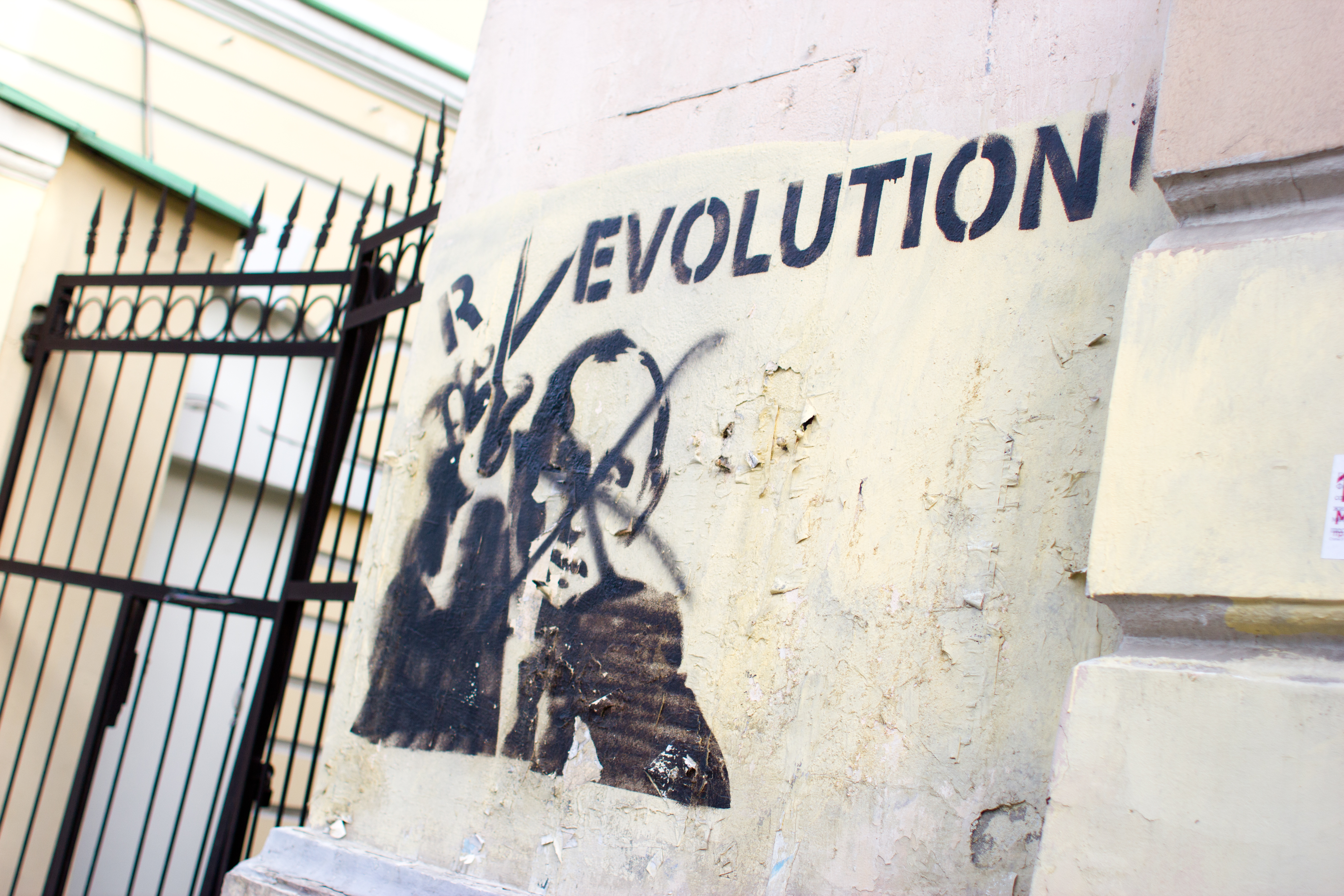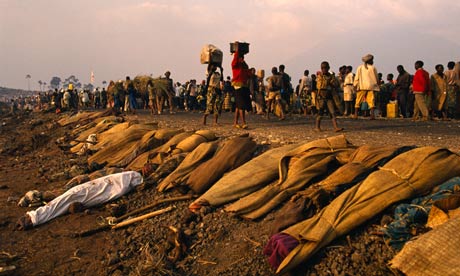“Russia has hybridized not only its actual warfare but also its informational warfare”
Michael Weiss, Editor-in-Chief of the Interpreter
The Ukraine Crisis: A Case Study of Russia’s Information Campaign (Part Two)
Nowhere else is Russia’s strong media presence more apparent than in Ukraine. 60% of all books purchased in the Ukraine were written in Russian, and ten Russian-language websites exist for every seven Ukrainian-language websites. According to researcher Andrzej Szeptycki, the dominant position of Russian media in Ukraine plays a key role in Ukrainian opposition to NATO accession. In May 2006, public protests in Crimea prevented American troops from participating in the joint U.S.-Ukrainian Sea Breeze manoeuvres. In June 2006, the Crimean Supreme Council declared the zone a “NATO-free territory” and in December 2006, local parties in Crimea organized a referendum on NATO accession in which 98% of respondents voted against NATO accession. In 2010, the Ukrainian Parliament voted to suspend seeking NATO membership altogether, lending credence to the media campaign against NATO accession.
During the beginning of the Ukraine Crisis in 2014, television and radio studios, as well as broadcasting and transmission towers, were the first to be taken over in Crimea and Eastern Ukraine, demonstrating the strategic value of communications infrastructure. Pro-Kyiv media was banned and was replaced with Russian channels, this disrupted the central government’s ability to broadcast information to regions under attack. A few days after the annexation of Crimea, President Putin awarded medals of the Order of Service to the Fatherland to four hundred journalists, editors, and television hosts — underlining the important role the mass media had played in the information campaign in Ukraine. State-controlled Russian media outlets used manipulated images and videos from Syria, Kosovo, and Chechnya, presenting them as reality in Eastern Ukraine.
Due to media sources scrutinizing the legitimacy of the interim government in Kyiv, police officers in Ukraine were uncertain as to which side was legitimate and whose orders to follow. In fact, many police commanders disappeared or changed sides in Eastern Ukraine. After the annexation of Crimea, more than 5,000 Ukrainian soldiers and navy personnel continued to serve in the Russian forces, partly due to the mass media’s successful attempt to weaken morale and foment dissent and distrust against the central government. The strategy employed in Crimea and Eastern Ukraine corresponds to the 1995 strategy articulated by Russian General Makhmut Gareev. General Gareev argued that the systematic broadcasting of biased or incendiary materials that contained a mixture of partially true and partially false information, can undermine public trust in the government and security forces, thereby destabilizing the country.
According to James Appathurai, NATO’s Deputy Assistant Secretary General for Political Affairs, “Russia is weaponising information in this crisis.”
To Distract and Entertain: A Postmodernist Brand of Truth
Russian media expert and journalist Peter Pomerantsev contends that the Soviets valued the appearance of truth. For example, in 1987, the U.S. government accused the Soviets of spreading falsehoods—such as attributing the origin of HIV/AIDs to a biological weapons research project created by the United States. In response, top Russian officials, such as Soviet Premier Gorbachev, vehemently insisted that the reporting was truthful.
“The main difference between propaganda in the USSR and the new Russia, is that in Soviet times the concept of truth was important. Even if they were lying they took care to prove what they were doing was ‘the truth.’ Now no one even tries proving the ‘truth.’ You can just say anything. Create realities.”
Gleb Pavlovsky, Political consultant who worked on Putin’s election campaign.
Since 2000 however, the idea of truth is considered to be altogether irrelevant. For example in 2014, Alexei Volin, Russia’s Deputy Minister of Communications, faced accusations that a Russian news story which alleged that Ukrainian nationalists had murdered a child in the city of Sloviansk, had been fabricated. Instead of insisting that the broadcast was truthful or apologizing, Volin suggested that the truth was irrelevant. What mattered instead, was how well a story resonated with the public and by extension, a TV channel’s soaring ratings. Senior management at the state-funded RT news channel embraces relativism, insisting that objective truth does not exist. For instance, RT interviewed Holocaust denier, Ryan Dawson, as a human rights activist and neo-Nazi, Manuel Ochsenreiter, as a Middle-East analyst.
The goal is not to persuade and inform, but rather to distract and entertain—offering a compelling alternative to Western narratives. In July 2014, when the Malaysian Airlines flight MH-17 was shot down over Eastern Ukraine, Russian news agency RIA Novosti announced that the plane had been downed by the Ukrainian military. Other news outlets conjectured several different stories; the aircraft had crashed on its own accord; the United States shot down the aircraft in order to shift blame on Russia; the plane had been flying on autopilot, pre-loaded with corpses from Amsterdam; or the downing of the plane was part of a NATO assassination attempt targeting Putin’s private jet.
This protean ‘post-modernist’ brand of truth can be traced back to the influence of public relations strategist and former theatre director Vladislav Surkov,  who acted as the First Deputy Chief of the Presidential Administration from 1999 to 2011. Surkov designed the public relations strategy behind Putin’s 2000 campaign for president. According to Russian media expert and journalist Peter Pomerantsev, through constant re-invention, new slogans, and masterful storytelling, Surkov keeps the opposition “constantly confused, a ceaseless shape-shifting that is unstoppable because it’s indefinable.” Unlike during the Cold War, the Russian government is now considered more ‘ideologically fluid’, supporting far-left as well as far-right movements, environmentalists, anti-globalists, and the financial elite.
who acted as the First Deputy Chief of the Presidential Administration from 1999 to 2011. Surkov designed the public relations strategy behind Putin’s 2000 campaign for president. According to Russian media expert and journalist Peter Pomerantsev, through constant re-invention, new slogans, and masterful storytelling, Surkov keeps the opposition “constantly confused, a ceaseless shape-shifting that is unstoppable because it’s indefinable.” Unlike during the Cold War, the Russian government is now considered more ‘ideologically fluid’, supporting far-left as well as far-right movements, environmentalists, anti-globalists, and the financial elite.
Information Warfare: Why is it Difficult to Counter?
A primary reason why information warfare is particularly difficult to counter is what the preliminary phase resembles – conventional tools of diplomacy used by Moscow during peacetime. Information-gathering, liaising with influential contacts, establishing media outlets, funding cultural and educational projects, and supporting government-friendly NGOs, are all legitimate actions under the domain of diplomacy and outreach.
Moreover, the approach favoured by Russia utilizes the West’s own openness as a weapon. According to researcher James Sherr, Lenin believed in using “bourgeois institutions for the purpose of destroying them.” This kind of subversive mindset influenced the policies of the USSR and may still influence Russia’s current-day approach to liberal institutions. For example, EU legislation currently prohibits member states from banning the dissemination of false information if the broadcaster is registered in another country. The EU’s audiovisual media market and TV-without-frontiers directive, mean that certain Russian broadcasters licensed in EU countries are able to violate hate speech laws, because the procedures are too cumbersome to remove the channels altogether. The Baltic countries and Finland have composed a joint letter to the European Commission proposing the establishment of a Russian-language TV channel in order to offer an alternative source of information to Russian-speaking diasporas in Europe.
In the upcoming and final chapter of this series on information warfare, we will examine in more depth the measures that Allied countries have historically applied to counter Soviet disinformation campaigns, through studying the work of the Interagency Active Measures Working Group in the U.S. and the British Foreign Office’s Information Research Department. Then, we will examine various strategies Allied countries could adopt to effectively counter misinformation in the digital age. To quote NATO spokesperson Oana Lungescu, “Our response to propaganda can’t be more propaganda.”
Find Part One of this series here.






